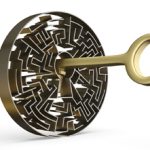 There is one thing we can be sure of: if we are going to be successful in disseminating information and educating the public (professional and general) about PNES, we need to make sure it is reported on and written about in as many publications and venues as possible.
There is one thing we can be sure of: if we are going to be successful in disseminating information and educating the public (professional and general) about PNES, we need to make sure it is reported on and written about in as many publications and venues as possible.
So, imagine my satisfaction in reading and sharing the most recent article that has come out in the ILAE epigraph. Why is this important? Well, let’s first talk a little about the ILAE. The ILAE was founded in 1909 and has as its mission to advance and disseminate knowledge about epilepsy, to promote research, education and training, and to improve services and care for patients, especially by prevention, diagnosis and treatment. It has more than 100 chapters in different countries and its excellent website contains information in a variety of languages. The ILAE is a prestigious organization that has an international reach. Now you may think, what does it matter to us who live with PNES and don’t have epilepsy? Well, it matters because now the ILAE has set its focus on the new topic of PNES. And that is fantastic news!
Last month, I was contacted by a writer, Nancy Volkers, from the ILAE. She had been pointed in my direction by Dr. Markus Reuber (who is interviewed in this article). She explained her plans for this article and to complete it she needed to speak with clinicians who work with PNES and also asked if I could put her in touch with a patient who has PNES. Her goal was clear: to report on PNES from both perspectives-the professional one with all the necessary scientific data and the personal one of those who live with PNES.
Just last week, she sent me her finished product (I have included the link below) and I urge you to read it. The article is fantastic because it provides a balanced and factual yet at the same time, deeply stirring window into what PNES really is all about. I especially like the patient testimonies that she collected from South Africa, Argentina, Canada and the UK. From all points of the globe and yet, all are strikingly similar in many ways.
I am excited to let you know that this is not the only project on PNES that the ILAE plans to put out but rather the first of a series that will include other articles and podcasts. So, by all means, stay tuned because this promises to be highly interesting and positive project that will likely do a great deal for PNES and those living with it.
https://www.ilae.org/journals/epigraph/epigraph-vol-21-issue-1-winter-2019/unraveling-the-mystery-of-psychogenic-non-epileptic-seizures?fbclid=IwAR2S0mdWb8EVOAjHTs5F77p42ojJ73rCrHfbjcb9f3KmiGZt5U0YXY9Owcw


Hello, my daughter was diagnosed her freshman year and she is currently a junior…she has spent most of her high school years in homebound…and after several episode s this week alone…she told me that she wants to return to homebound….I’m wondering is there anywhere near me that can help my daughter..and me understand this and what we can do to insure she has the ability to live a normal life and presue her dreams…We are in West Virginia but can be in Ohio or Kentucky in 20 minutes….I will do whatever it takes to help her….
We were put in touch with an amazing Psychologist from the Neurologist at our local Children’s hospital. Our Psychologist does nothing but PNES, and has been a huge help to us both as parents, and to my son. I hope your local Children’s hospital (pediatric neuro department)can put you into touch with their recommended Psychologist for this condition. Don’t give us seeing a Psychologist – they understand this world more than you know. And seek to learn what you and your daughter can glean from this experience – how can this trial make you stronger in the long run? Don’t give up hope….